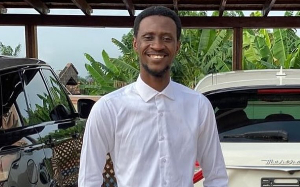Bawku (U/E), Aug 23, GNA - Thirty participants drawn from women groups in the Bawku Municipality were on Tuesday educated on peace building to enable them to effectively participate in bringing lasting peace to the area.
Women have been identified as a major tool that could foster the peace process which has been instituted to resolve the protracted chieftaincy conflict in the area.
The participants were taken through the principles of peace building which include reflection on values, addressing basic needs and rights, analyzed conflicts and violence, coordinating of approaches and actors, innovate and use of creativity and seeing cultural values as a resource tool in peace building. The participants were also taken through peace building processes such as women waging nonviolent conflict, reducing violence, healing trauma, transforming conflict and building capacity. The workshop was organized by the Hunger Project, a non governmental organization working to empower men and women to end their own hunger and poverty.
Miss Nana Sarpong Aygmang-Mensah, Coordinator for the Women in Peace Building Project, noted that the project was a subproject under the hunger project to empower women in the area to resolve the conflict and bring about lasting peace for the development of women and children who were the most vulnerable in society during conflicts. She indicated that there was the need to provide a conducive platform that could allow women to contribute to building lasting peace in the area.
Dr Naana Agymang Mensah, Country Director for the Hunger Project, noted that because women were half of every community and the task of peace building were so great, women and men had to be partners in the process of the peace building.
She indicated that women were the central caretakers of families in many cultures, 93every one suffers when women are oppressed, victimized and excluded from peace building due to their centrality to communal life in the society," she added.
Regional News of Tuesday, 23 August 2011
Source: GNA
















